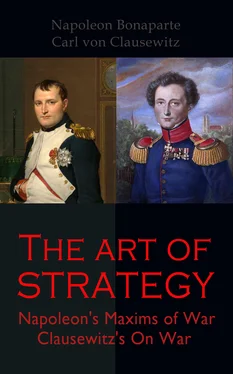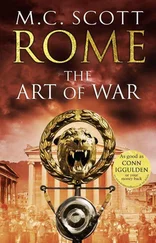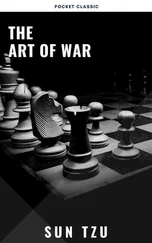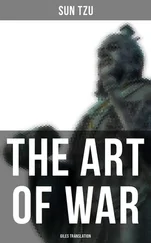Table of Contents
It may be laid down as a principle, that the line of operation should not be abandoned; but it is one of the most skilful manœuvres in war, to know how to change it, when circumstances authorize or render this necessary. An army which changes skilfully its line of operation deceives the enemy, who becomes ignorant where to look for its rear, or upon what weak points it is assailable.
Frederick sometimes changed his line of operation in the middle of a campaign; but he was enabled to do this, because he was manœuvring at that time in the centre of Germany—an abundant country, capable of supplying all the wants of his army in case his communications with Prussia were intercepted.
Marshal Turenne, in the campaign of 1746, gave up his line of communication to the allies in the same manner; but, like Frederick, he was carrying on the war at this time in the centre of Germany, and having fallen with his whole forces upon Rain, he took the precaution of securing to himself a depôt upon which to establish his base of operation.
By a series of manœuvres, marked alike by audacity and genius, he subsequently compelled the imperial army to abandon its magazines, and retire into Austria for winter quarters.
But these are examples which it appears to me should only be imitated when we have taken full measure of the capacity of our adversary, and above all, when we see no reason to apprehend an insurrection in the country to which we transfer the theatre of war.
Table of Contents
When an army carries with it a battering train, or large convoys of sick and wounded, it cannot march by too short a line upon its depôts.
It is above all in mountainous countries, and in those interspersed with woods and marshes, that it is of importance to observe this maxim; for, the convoys and means of transport being frequently embarrassed in defiles, an enemy by manœuvring may easily disperse the escorts, or make even a successful attack upon the whole army, when it is obliged, from the nature of the country, to march in an extended column.
Table of Contents
The art of encamping in position is the same as taking up the line in order of battle in this position. To this end, the artillery should be advantageously placed, ground should be selected which is not commanded or liable to be turned, and, as far as possible, the guns should cover and command the surrounding country.
Frederick has remarked that, in order to be assured that your camp is well placed, you should see if, by making a small movement, you can oblige the enemy to make a greater; or, if after having forced him to retrograde one march you can compel him to fall back another.
In defensive war, all camps should be entrenched in the front and wings of the position they occupy, and care should be taken that the rear is left perfectly open. If you are threatened with being turned, arrangements should be made beforehand for taking up a more distant position; and you should profit by any disorder in the enemy’s line of march, to make an attempt upon his artillery or baggage.
Table of Contents
When you are occupying a position which the enemy threatens to surround, collect all your force immediately, and menace him with an offensive movement. By this manœuvre, you will prevent him from detaching and annoying your flanks in case you should judge it necessary to retire.
This was the manœuvre practised by General Desaix, in 1798, near Radstadt. He made up for inferiority in numbers by audacity, and maintained himself the whole day in position in spite of the vigorous attacks of the Archduke Charles. At night he effected his retreat in good order, and took up a position in the rear.
It was in accordance, also, with this principle, in the same campaign, that General Moreau gave battle at Biberach, to secure his retreat by the passes of the Black mountains. A few days after, he fought at Schliengen with the same object. Placed in a good defensive position, he menaced the Archduke Charles by a sudden return to the offensive, while his artillery and baggage were passing the Rhine by the bridge of Huningen, and he was making all the necessary arrangements for retiring behind that river himself.
Here, however, I would observe, that the execution of such offensive demonstrations should be deferred always till toward the evening, in order that you may not be compromised by engaging too early in a combat which you cannot long maintain with success.
Night, and the uncertainty of the enemy after an affair of this kind, will always favor your retreat, if it is judged necessary; but, with a view to mask the operation more effectually, fires should be lighted all along the lines, to deceive the enemy and prevent him from discovering this retrograde movement, for in a retreat it is a great advantage to gain a march upon your adversary.
Table of Contents
Never lose sight of this maxim: that you should establish your cantonments at the most distant and best-protected point from the enemy, especially where a surprise is possible. By this means you will have time to unite all your forces before he can attack you.
In the campaign of 1745, Marshal Turenne lost the battle of Marienthal, by neglecting this principle; for if, instead of reassembling his divisions at Erbsthausen, he had rallied his troops at Mergentheim, behind the Tauber, his army would have been much sooner reunited; and Count Merci, in place of finding only three thousand men to fight at Erbsthausen (of which he was well informed), would have had the whole French army to attack in a position covered by a river.
Some one having indiscreetly asked Viscount Turenne how he had lost the battle of Marienthal: “By my own fault,” replied the marshal; “but,” added he, “when a man has committed no faults in war, he can only have been engaged in it but a short time.”
Table of Contents
When two armies are in order of battle, and one has to retire over a bridge, while the other has the circumference of the circle open, all the advantages are in favor of the latter. It is then a general should show boldness, strike a decided blow, and manœuvre upon the flank of his enemy. The victory is in his hands.
This was the position of the French army at the famous battle of Leipzig, which terminated the campaign of 1813 so fatally for Napoleon; for the battle of Hanau was of no consequence, comparatively, in the desperate situation of that army.
It strikes me that, in a situation like that of the French army previous to the battle of Leipzig, a general should never calculate upon any of those lucky chances which may arise out of a return to the offensive, but that he should rather adopt every possible means to secure his retreat. With this view, he should immediately cover himself with good entrenchments, to enable him to repel with inferior numbers the attack of the enemy, while his own equipments are crossing the river. As fast as the troops reach the other side, they should occupy positions to protect the passage of the rear guard, and this last should be covered by a tête de pont as soon as the army breaks up its camp. During the wars of the Revolution, too little regard was paid to entrenchments; and it is for this reason we have seen large armies dispersed after a single reverse, and the fate of nations compromised by the issue of one battle.
Читать дальше












